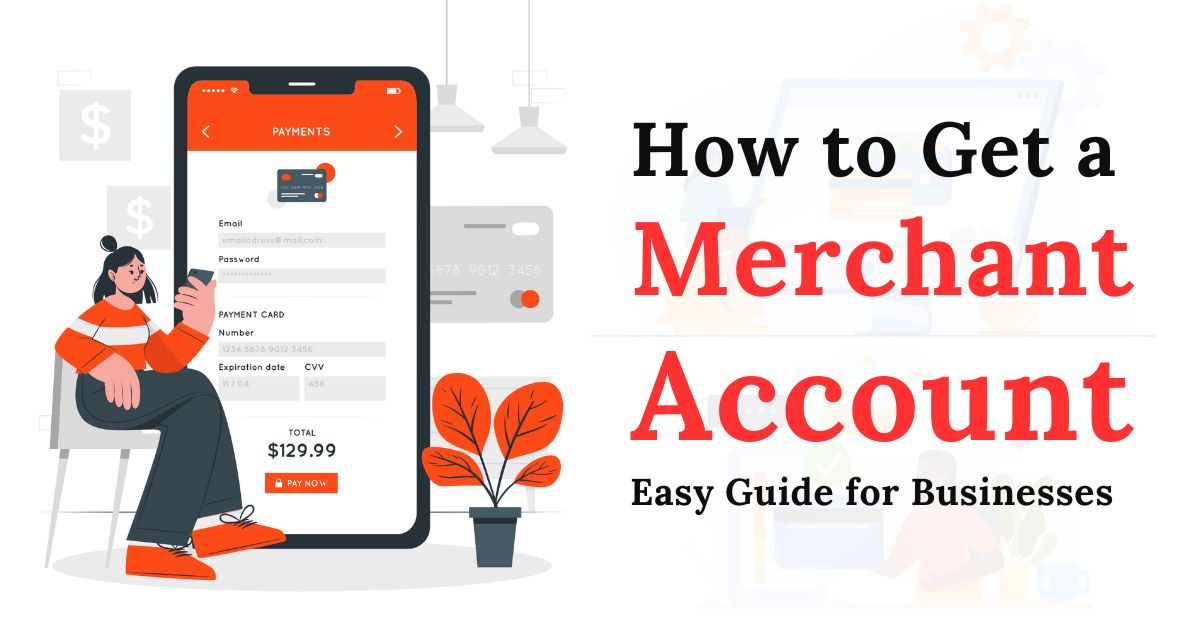
In today’s fast-paced digital economy, accepting credit cards and other forms of electronic payment is essential for most businesses. A merchant account is the key to unlocking these payment methods, allowing businesses to process transactions securely and efficiently. If you're new to the world of merchant accounts, this guide will break down the basics and help you understand how to get started.
What is a Merchant Account?
A merchant account is a type of bank account that allows businesses to accept payments by debit and credit cards. It acts as an intermediary between the customer’s bank and the business’s bank, ensuring that funds are transferred securely after a transaction is approved. Without a merchant account, businesses cannot process card payments directly.
How Does a Merchant Account Work?
When a customer makes a purchase using a credit card, the following steps take place:
- Transaction Initiation: The customer provides payment information, either in person via a card terminal or online through a payment gateway.
- Authorization: The merchant sends the payment information to the acquiring bank (the merchant’s bank), which then forwards it to the customer’s issuing bank (the customer’s credit card provider) for approval. The issuing bank checks whether the customer has sufficient funds or credit to complete the purchase.
- Approval or Decline: The issuing bank approves or declines the transaction. If approved, the acquiring bank receives an authorization code, and the merchant can proceed with the sale.
- Settlement: The funds are temporarily held in the merchant account until they are transferred to the business's regular bank account. This process is typically completed in 24–48 hours.
Types of Merchant Accounts
Merchant accounts can be categorized based on how transactions are processed:
- Retail Merchant Accounts: For businesses with physical storefronts, these accounts process payments through a point-of-sale (POS) system or terminal.
- E-Commerce Merchant Accounts: These accounts are for online businesses, allowing them to accept card payments via a payment gateway or virtual terminal.
- Mobile Merchant Accounts: Ideal for businesses on the go, such as food trucks or market vendors, these accounts use mobile devices or tablets to process payments.
- High-Risk Merchant Accounts: For businesses deemed high-risk due to the nature of their industry or transaction volume, these accounts have stricter terms and may come with higher fees.
What You Need to Set Up a Merchant Account
To set up a merchant account, you’ll typically need the following:
- A Business Bank Account: The merchant account provider will deposit funds into this account after transactions are processed.
- A Legal Business Entity: You must be a registered business to apply for a merchant account.
- A Payment Processor: This service will handle the technical aspects of processing payments between banks. Many merchant account providers offer in-house payment processing, while others partner with third-party processors.
- POS System or Payment Gateway: If you’re accepting in-person payments, you’ll need a POS system or card terminal. For online payments, you’ll need a secure payment gateway integrated with your website.
Merchant Account Fees
Merchant accounts come with various fees, and understanding these costs is crucial for managing your budget. Common fees include:
- Transaction Fees: A percentage of each transaction (usually 2%–3%) that goes to the merchant account provider.
- Monthly or Annual Fees: Some providers charge ongoing fees for account maintenance or services.
- Setup Fees: A one-time fee to establish your account.
- Chargeback Fees: If a customer disputes a transaction, you may be charged a fee for managing the chargeback process.
- PCI Compliance Fees: Fees related to meeting security standards set by the Payment Card Industry (PCI) to protect customer data.
Choosing the Right Merchant Account Provider
Choosing the right provider is crucial for your business’s financial health. Here are some key factors to consider:
- Cost: Compare transaction fees, monthly fees, and setup costs across different providers.
- Security: Ensure the provider offers strong security measures, such as PCI compliance and fraud protection.
- Support: Look for providers that offer 24/7 customer support to address any payment processing issues that may arise.
- Compatibility: Make sure the provider’s systems are compatible with your existing POS or e-commerce platform.
Benefits of Having a Merchant Account
- Convenience for Customers: Accepting credit cards and other electronic payments improves the shopping experience and makes it easier for customers to complete purchases.
- Increased Sales: Businesses that accept credit cards typically see higher sales, as customers are more likely to spend using a card than with cash.
- Faster Transactions: Electronic payments are processed quickly, allowing you to reduce checkout times and improve efficiency.
- Better Cash Flow Management: Merchant accounts provide clear records of transactions, helping you manage your cash flow and financial reporting with ease.
Final Thoughts
A merchant account is an essential tool for any business that wants to accept credit card payments. Whether you're running a small business, an online store, or a high-risk enterprise, having the right merchant account in place can streamline your operations and boost your bottom line. By understanding the basics and carefully choosing the right provider, you can ensure that your payment processing runs smoothly and securely.
Ready to take the next step? Contact us today at InfoMerchant for a free cost analysis and let us help you find the best merchant account solution for your business!










